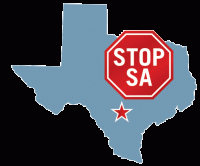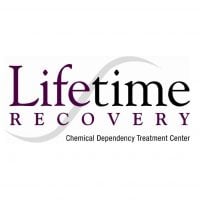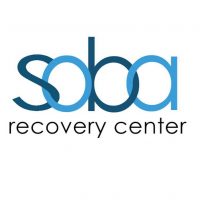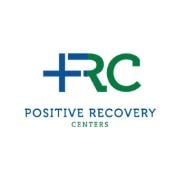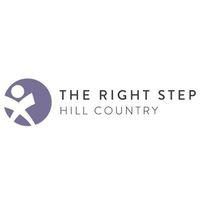The Center for Health Care Services - Children's Behavioral Health
Drug Rehab Center in San Antonio, Texas
The Center for Health Care Services - Children's Behavioral Health in San Antonio, TX provides addiction treatment programs including outpatient and residential treatment, aftercare support, and accepts private health insurance.
About This San Antonio, TX Facility
The Center for Health Care Services - Children's Behavioral Health, situated in San Antonio, Texas, is an outpatient clinic dedicated to providing comprehensive treatment for children and adolescents. With a history of delivering quality care, this facility offers a range of services, including crisis intervention, substance abuse treatment, and support for those in foster care.
• Confidential and secure environment that promotes respect and encourages independent living
• Specialized services for children and adolescents, such as outpatient clinic services and crisis support
• Targeted programs for adolescent substance abuse and individuals in the Texas Correctional Office of Offenders with Medical or Mental Impairments
• Unique offerings like the Healing Hearts Treatment Foster Care and YES Waiver Program
The Center for Health Care Services - Children's Behavioral Health is accredited by CARF, demonstrating their commitment to meeting rigorous quality standards in their treatment programs. They accept private health insurance, making their services more accessible to families seeking help for their children.
This facility specializes in treating a variety of conditions, including alcoholism, opioid addiction, dual diagnosis, and drug addiction. They offer a comprehensive range of services, such as aftercare support, drug rehab, dual-diagnosis treatment, outpatient programs, and residential levels of care, allowing for a personalized approach to treatment that caters to the unique needs of each child and adolescent.
Genders
Ages
Modality
Additional
Accreditations

CARF
The Commission on Accreditation of Rehabilitation Facilities (CARF) is a non-profit organization that specifically accredits rehab organizations. Founded in 1966, CARF's, mission is to help service providers like rehab facilities maintain high standards of care.
Conditions and Issues Treated
Opioid addiction treatment facilities in Texas, like The Center for Health Care Services - Children's Behavioral Health cover both illegal and prescription opioids abuse. Most plans include detoxification and subsequent medications to ease the process. Behavioral therapies and counseling are also necessary to resolve the root cause of addiction.
A dual diagnosis is when someone deals with both alcohol and mental or emotional disorder. Emotional trauma, bipolar disorder, schizophrenia, depression can be part of dual diagnosis therapy. It must happen simultaneously to get care for these conditions to handle any of them effectively.
Levels of Care Offered
This center offers a variety of custom treatment tailored to individual recovery. Currently available are Aftercare Support, Drug Rehab, Dual-Diagnosis, Outpatient, Residential, with additional therapies available as listed below.
An outpatient treatment program is set up to help with alcohol or drug addiction, or a co-occurring disorder. The patient must attend the Texas facility for their therapy and other programs but are able to return home each night. The frequency of mandatory attendance decreases after much of The Center for Health Care Services - Children's Behavioral Health‘s program is complete.
Residential treatment programs are those that offer housing and meals in addition to substance abuse treatment. Rehab facilities that offer residential treatment allow patients to focus solely on recovery, in an environment totally separate from their lives. Some rehab centers specialize in short-term residential treatment (a few days to a week or two), while others solely provide treatment on a long-term basis (several weeks to months). Some offer both, and tailor treatment to the patient’s individual requirements.
Treatment is just the first step to maintaining sobriety. After treatment, aftercare support at The Center for Health Care Services - Children's Behavioral Health helps the individual adjust to a life without substances. This support may involve a sober living home in or near San Antonio, TX, career counseling, or educational assistance. This is when a relapse prevention plan begins to take shape.
The Center for Health Care Services - Children's Behavioral Health‘s Therapies & Programs
Treatment programs include individual therapy for the greatest chances of success. Customized individual therapy is counseling involving you and your The Center for Health Care Services - Children's Behavioral Health counselor. Individual therapy leads to greater peace and understanding about your triggers for addiction.
When family members are more proactive and involved in the treatment procedure, it encourages the patient to advance his or her progress. Moreover, it shouldn’t be ignored that genetics play a role when it comes to addiction, so it’s better to approach the problem as a unit. Also, with proper education, family members can help an individual avoid addiction triggers and guide him or her in making lifestyle changes necessary for his or her sobriety.
It has been said that unhealed trauma is the root of most addictions. Trauma therapy is a way of addressing trauma while in a safe situation in order to heal. Healing past traumas and introducing coping strategies are strong foundations for sustained recovery from addiction. This may involve individual or group counseling or both, in a San Antonio, TX facility. Other forms of therapy have been proven to assist in healing past traumas.
In the midst of an addiction certain healthy habits and behaviors can be forgotten or discarded altogether. While in treatment you will learn life skills that will help you successfully maintain sobriety and rebuild your life in San Antonio, TX. Some examples of this are time management, social skills, nutrition, hygiene, stress management and taking care of yourself.
Payment Options Accepted
For specific insurance or payment methods please contact us.
Is your insurance accepted?
Ask an expert, call (888) 674-0062
Additional Details
Specifics, location, and helpful extra information.
San Antonio, Texas 78238 Phone Number(210) 261-3557 Meta DetailsUpdated April 15, 2024
Staff Verified
Patient Reviews
There are no reviews yet. Be the first one to write one.
San Antonio, Texas Addiction Information
Texas is one of the primary hubs for drug smuggling into the country. The border between Texas and Mexico is more than 1,000 miles long. More than 10 million residents use alcohol every year and more than 25% of those are minors. Alcohol and drug use has become so common in Texas that almost 15% of all deaths can be attributed to these substances.
The impact of drug addiction and abuse on the community in San Antonio, Texas, is significant. There were over 1,400 drug overdose deaths in San Antonio in 2016. 9,000 admissions to drug and alcohol treatment programs in the San Antonio area in 2017. Some of the most common include inpatient, outpatient, and residential treatment. There are also several detox facilities available in San Antonio.
Treatment in Nearby Cities
- Pharr, TX (229.9 mi.)
- College Station, TX (157.7 mi.)
- Freeport, TX (200.5 mi.)
- Uvalde, TX (72.9 mi.)
- Robstown, TX (131.4 mi.)
Centers near The Center for Health Care Services - Children's Behavioral Health
The facility name, logo and brand are the property and registered trademarks of The Center for Health Care Services - Children's Behavioral Health, and are being used for identification and informational purposes only. Use of these names, logos and brands shall not imply endorsement. RehabNow.org is not affiliated with or sponsored by The Center for Health Care Services - Children's Behavioral Health.



